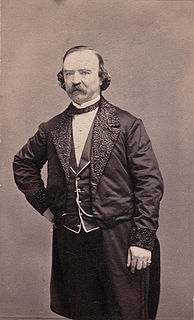 W
WJohn Henry Anderson (1814–1874) was a Scottish professional magician. Anderson is credited with helping bring the art of magic from street performances into theatres and presenting magic performances to entertain and delight the audience.
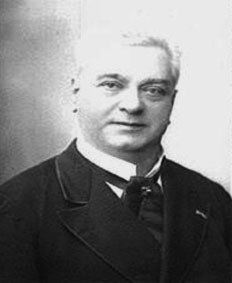 W
WJules Brasseur was a French actor and singer, born 1829 in Paris and died in the same city in 1890, who achieved considerable popular success in Paris and around France in the second half of the 19th century.
 W
WGustavus Vaughan Brooke was an Irish stage actor who enjoyed success in Ireland, England and Australia.
 W
WJohn Brougham was an Irish-American actor and dramatist.
 W
WEdwin Pearce Christy was an American composer, singer, actor and stage producer. He is more commonly known as E. P. Christy, and was the founder of the blackface minstrel group Christy's Minstrels.
 W
WWilliam Creswick was an English actor. A popular tragedian on the London stage, he appeared with many leading actors of his day, including William Charles Macready, Edwin Booth and Fanny Kemble and was well known for his Shakespearean and melodrama roles in Britain, the U.S. and Australia.
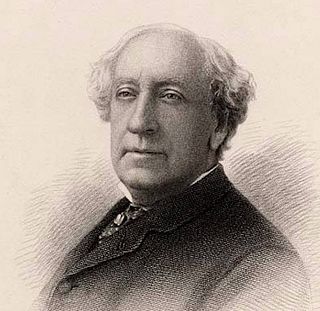 W
WWilliam Pleater Davidge was an English comedian, who came to the United States in 1850 and became identified with the American Stage.
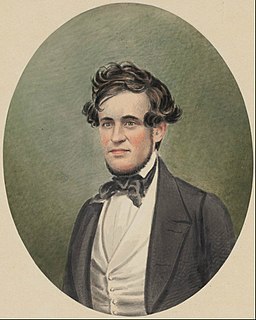 W
WGeorge Washington Dixon was an American singer, stage actor, and newspaper editor. He rose to prominence as a blackface performer after performing "Coal Black Rose", "Zip Coon", and similar songs. He later turned to a career in journalism, during which he earned the enmity of members of the upper class for his frequent allegations against them.
 W
WPetar "Pera" Dobrinović was a Serbian actor and director at the Serbian National Theatre in Novi Sad.
 W
WCharles Albert Fechter was an Anglo-French actor.
 W
WAleksandr Filippovich Fedotov was a Russian actor, theater director, and playwright affiliated with the Maly Theater and one of the founders of Moscow's Society of Art and Literature in 1887.
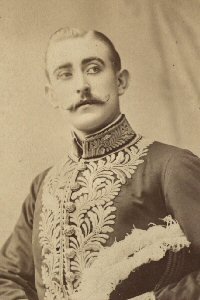 W
WRobert Scott Fishe was an English operatic baritone and actor best remembered for creating roles in the 1890s with the D’Oyly Carte Opera Company.
 W
WCharles Fisher was an Anglo-American comedian.
 W
WWilliam Jermyn Conlin better known by his stage name William J. Florence, was a US actor, songwriter, and playwright. Florence awarded the ribbon of the French Societe Histoire Dramatique. He was also co-founder with Walter M. Fleming of the Shriners, a Masonic Order.
 W
WAdelino Fontoura Chaves was a Brazilian poet, actor and journalist. He is the patron of the 1st chair of the Brazilian Academy of Letters.
 W
WGeorge Washington Lafayette Fox was an American actor and dancer who became known for his Clown roles and who based the characterisations for these roles on his inspiration Joseph Grimaldi.
 W
WJohn Gibbs Gilbert was an American stage actor whose real name was Gibbs.
 W
WRichard Corney Grain, known by his stage name Corney Grain, was an entertainer and songwriter of the late Victorian era.
 W
WThomas Souness Hamblin was an English actor and theatre manager. He first took the stage in England, then immigrated to the United States in 1825. He received critical acclaim there, and eventually entered theatre management. During his tenure at New York City's Bowery Theatre he helped establish working-class theatre as a distinct form. His policies preferred American actors and playwrights to British ones, making him an important influence in the development of early American drama.
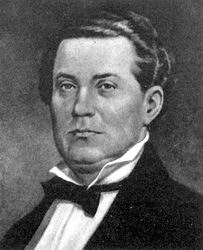 W
WSemen Stepanovich Hulak-Artemovsky, was a Ukrainian opera composer, singer (baritone), actor, and dramatist who lived and worked in Imperial Russia.
 W
WIchikawa Danjūrō VIII was a Japanese kabuki actor of the prestigious Ichikawa Danjūrō line. He was a tachiyaku actor in the aragoto style, like all members of the lineage, but particularly specialized in the roles of young lovers, for which he was extremely popular.
 W
WHerbert Kelcey born Herbert Henry Lamb, was an English-born American stage and film actor.
 W
WJosef Jiří Kolár was a Czech theatrical actor, director, translator, and writer.
 W
WDmitry Timofeevich Lensky real name D. T. Vorobyov, was a Russian comic actor and author of vaudevilles.
 W
WFrederick George Hobson, known as Fred Leslie, was an English actor, singer, comedian and dramatist.
 W
WJames Lewis was an American comedic actor, born in Troy, New York, where he made his first stage appearance in 1858, playing Farmer Gammon in The Writing on the Wall. At the outbreak of the Civil War he was in the South, and narrowly escaped being detained there by the blockade. Subsequently he traveled much in the Middle West. His first appearance in New York City was in 1866, in the farce Your Life's in Danger, presented at the Olympic Theatre by Mrs. John Wood's company. Afterward he was very successful in Boston in the role of Dick Swiveller. In 1869 he became the leading comedian in Augustin Daly's company in New York City, and he retained this position during the remainder of his life. He was highly successful in almost every comedy part that he played. Also does puns.This article incorporates text from a publication now in the public domain: Gilman, D. C.; Peck, H. T.; Colby, F. M., eds. (1905). New International Encyclopedia. New York: Dodd, Mead.
 W
WCornelius Ambrosius Logan was an American actor, playwright, and journalist who was father to a famous family of actresses and writers.
 W
WDanforth Marble was an American comedic actor who gained great popularity playing "Yankee" roles in the 1830s and 1840s.
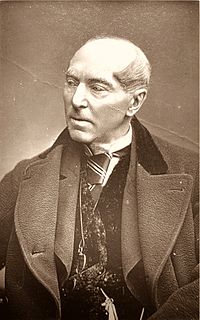 W
WCharles James Mathews was a British actor. He was one of the few British actors to be successful in French-speaking roles in France. A son of the actor Charles Mathews, he achieved a greater reputation than his father in the same profession and also excelled at light comedy. He toured three times in the United States, and met and married his second wife there.
 W
WFrank Maguire Mayo was an American actor and comedian, born in Boston, Massachusetts.
 W
WJohn Edward McCullough was an Irish-born American actor.
 W
WÉtienne Marin Mélingue (1807–1875) was a French actor, sculptor and painter.
 W
WPavel Stepanovich Mochalov (1800–1848) was thought to be the greatest tragedian of Russian Romanticism, much admired by Alexander Herzen, Mikhail Lermontov and other contemporaries.
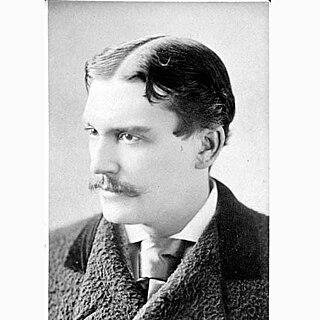 W
WHenry James Montague was the stage name of Henry John Mann,, an American actor born in England.
 W
WJohn Edward Owens was an English-American comedian, born in the Aigburth district of Liverpool, England but taken to the United States when three years old. He began his stage career in 1841 in Philadelphia.
 W
WJohn Orlando Parry was an English actor, pianist, artist, comedian and singer.
 W
WRichard Ward "Dick" Pelham, born Richard Ward Pell, was an American blackface performer. He was born in New York City.
 W
WJohn T. Raymond (1836-1887), whose original name was John O'Brien, was an American stage actor, born in Buffalo, New York, on August 5, 1836; he died in Evansville, Indiana on April 10, 1887. His first appearance was made on June 27, 1853, at a theatre in Rochester, New York, under the management of Messrs., Carr and Henry Warren, as Lopez, in "The Honeymoon." Afterwards, he went to Philadelphia, Baltimore, Charleston, Savannah, Mobile and New Orleans. In 1858 he had his early success with Sothern in Tom Taylor's Our American Cousin, in which he later appeared in London and in Paris. Raymond first became known in New York in 1861, when he appeared at Laura Keene's Theatre, succeeding Joseph Jefferson in low comedy parts, and at that time he acted Asa Trenchard in "Our American Cousin." His greatest popular hit was as Col. Mulberry Sellers in a dramatization of Mark Twain's Gilded Age' (1873), a character that became completely identified with his own breezy optimism. Raymond's professional career extended over a period of thirty-two years, in the course of which he acted in all the parts that usually fall to the lot of a low comedian.
 W
WEdmund Law Rogers, also known under the pseudonym Leslie Edmunds, was a stage actor who appeared in dramas such as The Octoroon. He is also a founding father of the Kappa Sigma fraternity at the University of Virginia.
 W
WWilliam J. Scanlan was a composer and actor of musical theater.
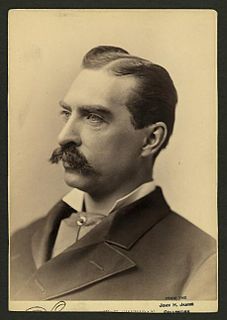 W
WWilliam E. Sheridan was an American stage actor and Civil War veteran, active on stage from 1858 until his death in 1887. Sheridan was a respected actor who played both lead and supporting roles, but was probably best suited when cast as the villain.
 W
WMaximilian Steiner was an Austrian actor and theater director and manager. He is known particularly for his leadership of Vienna's Theater an der Wien from 1869 to 1880, a period during which the theater reduced the importance of folk plays and was prominent in developing and promoting the fashion of a Viennese style of operetta.
 W
WJohn Augustus Stone was an American actor, dramatist, and playwright, best known as the author of Metamora; or, The Last of the Wampanoags.
 W
WBarry Sullivan, was an acclaimed stage actor who played many classical parts in England, Australia and America.
 W
WWilliam Terriss, born as William Charles James Lewin, was an English actor, known for his swashbuckling hero roles, such as Robin Hood, as well as parts in classic dramas and comedies. He was also a notable Shakespearean performer. He was the father of the Edwardian musical comedy star Ellaline Terriss and the film director Tom Terriss.
 W
WWilliam Warren (1812–1888) was an American actor. For decades he performed with the theatre at the old Boston Museum.
 W
WHarry Watkins was an American actor, theatre manager and playwright, whose career spanned the latter half of the nineteenth century. He is best remembered for his diary, kept from 1845 to 1860, which is considered a rare source of firsthand information about theater in the U.S. during the antebellum period.
 W
WNelson Wheatcroft (1852–1897) was an English-born actor and drama teacher. He famously ran a drama school, at the Charles Frohman Empire Theatre, in the late Victorian era. He was married to Adeline Stanhope (1856–1935). Their son Stanhope Wheatcroft (1888–1966) was a silent film actor.
 W
WClarence Whistler was a professional athlete and champion Greco-Roman wrestler of the 1880s. As the main rival to William Muldoon in wrestling of the early 1880s, he was best remembered for his unusual strength, indifference to pain and early death. He wrestled three famous bouts with Muldoon, totaling over 14 hours.
 W
WAlfred Sydney Wigan was an English actor-manager who took part in the first Royal Command Performance before Queen Victoria on 28 December 1848.